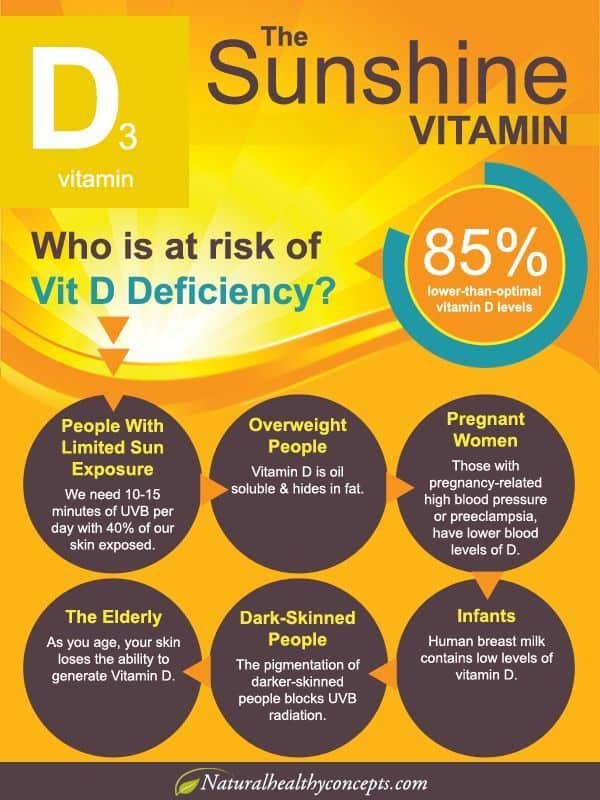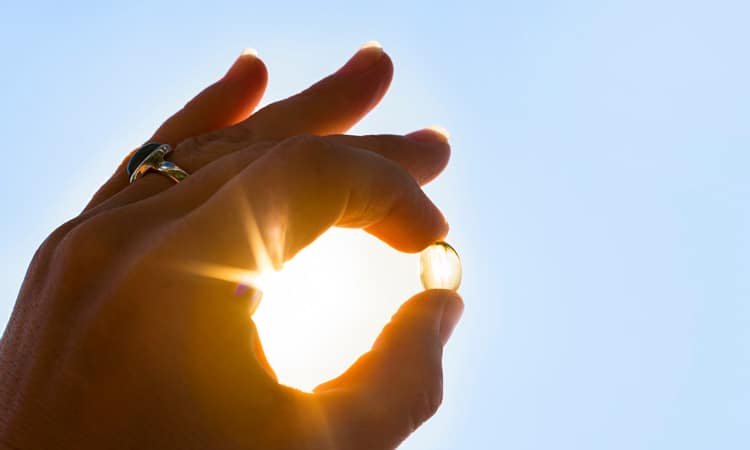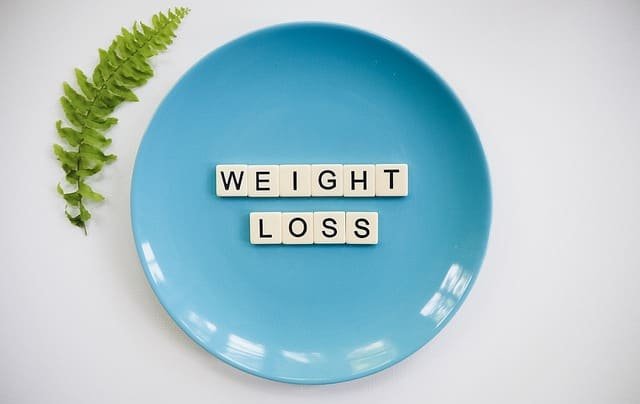What are the Causes of Vitamin D Deficiency? Its Symptoms and Treatment
Contents
Causes of Vitamin D Deficiency, Symptoms and Treatment
What is Vitamin D?
Vitamin D is a fat-soluble vitamin that is naturally present in very few foods and is available as a dietary supplement. Vitamin D Responsible for increasing the intestinal absorption of calcium, magnesium and phosphate, and several other biological effects. The body produces vitamin D in response to skin exposure to sunlight. It also occurs naturally in some foods, including some fish, fish liver oils and egg yolks, and dairy products, and fortified cereals.
What is Vitamin D deficiency?
Vitamin D deficiency means that you do not have enough vitamin D in your body for the normal functioning of the body.
Why is Vitamin D so important?
Vitamin D is one of the many vitamins that our body needs to stay healthy. This vitamin has many functions, including:
Keeping bones strong: healthy bones protect you against a variety of conditions, including rickets. Rickets is a condition where children have weak and soft bones. It is caused by the lack of vitamin D in the body.
You need vitamin D so that calcium and phosphorus can be used to build bones. In adults, having soft bones is a condition called osteomalacia.
Calcium absorption: vitamin D, together with calcium, helps to build bones and keeps bones strong and healthy. Weak bones can cause osteoporosis, the loss of bone density, which can cause fractures.
Vitamin D, once taken orally or by exposure to sunlight, becomes an active form of the vitamin. It is that active form which promotes the optimal absorption of calcium from your diet.
Working with parathyroid glands: the parathyroid glands work minute by minute to balance blood in the blood by communicating with the kidneys, gut, and skeleton. When there is enough calcium in the diet and enough active vitamin D, the calcium is included in the diet and used throughout the body. If the calcium intake is insufficient or vitamin D low, the parathyroid glands “borrow” calcium from the skeleton to keep calcium in the blood within the normal range.
What Causes Vitamin D Deficiency?
Vitamin D deficiency can occur for several reasons: You do not consume the recommended levels of the vitamin over time.

- You do not get enough vitamin D in your diet
- Not taking enough vitamin D from food (a problem of malabsorption)
- You do not have enough sunlight exposure.
- Your liver or kidneys cannot convert vitamin D into its active form in the body.
- Take medicines that disrupt your body’s ability to convert or absorb vitamin D
- Having dark skin.
- Being old
- Being overweight or obese.
- Do not eat many fish or dairy products.
- Live far from the equator, where there is little sun all year round.
- Always wear sunscreen when you leave.
- Stay inside.
Signs and Symptoms of Vitamin D Deficiency
Get sick or get infected often
If you often fall ill, especially in the event of a cold or flu, low vitamin D levels may be a contributing factor.
One of the most important functions of vitamin D is to keep your immune system strong so that it can fight viruses and bacteria that cause diseases. It has a direct interaction with the cells responsible for controlling the infection
Fatigue and fatigue
Feeling tired can have many causes, and vitamin D deficiency can be one of them. there is a link between the getting fatigue and vitamin d deficiency. it has been observed that vitamin d deficiency cause fatigue and headache.
Bone and back pain
Bone pain and low back pain may be signs of insufficient vitamin D levels in the blood. Extensive observational studies have found a link between a deficiency and chronic low back pain. this symptom is more common in those people who are with a low level of vitamin d in the body, including severe back pain that limited their daily activities.
studies have revealed that people with vitamin D deficiency had nearly twice as much risk of bone pain in the legs, ribs, or joints compared to people with blood levels in the normal range.
Depression
A depressed mood can also be a sign of vitamin D deficiency. Some controlled studies have shown that administering vitamin D to people with a deficiency helps to improve depression, including seasonal depression that occurs during the colder months.
Which Problems and Diseases can be Caused by Vitamin D Deficiency?
loss of bone density
Vitamin D deficiency can lead to a loss of bone density, which can contribute to osteoporosis and fractures (broken bones).
Rickets in children
Severe vitamin D deficiency can also lead to other diseases. It can cause rickets in children. Rickets is a rare disease that causes bones to soften and bend. African-American babies and children are at greater risk or have rickets. In adults, a severe vitamin D deficiency leads to osteomalacia. Osteomalacia causes weak bones, bone pain, and muscle weakness.
Osteoporosis
The bones become thin or brittle. The first sign can be a bone that breaks easily due to minor trauma. It is common in the elderly.
Osteomalacia
This can affect children. Bones become soft, resulting in bone abnormalities, short stature, tooth problems, fragile bones and pain while walking.
supplements
Other problems
Researchers are studying vitamin D because of the possible connections with various medical conditions, such as
- Diabetes
- High blood pressure
- Cancer
- Autoimmune diseases such as multiple sclerosis.
- Hair loss
What are Vitamin D food Sources?
Good dietary sources of vitamin D include:
- Bluefish such as mackerel or salmon
- Beef liver
- Cheese
- Mushrooms
- Egg yolks
- Fortified foods including breakfast cereals, orange juice, milk, soy drinks, and margarine.
How can you get more vitamin D from the sun?
Exposure to natural sunlight
Short periods spent outside can increase vitamin D levels. Sunlight is essential to increase vitamin D, but insufficient sun exposure increases the risk of skin cancer. For safe exposure to sunlight, a person must spend a short time every day outside without sunscreen and with his forearms, hands or legs exposed to the sun.

People should consult their physician about safe ways to increase exposure to sunlight, especially if they have clear skin or conditions that affect it, such as psoriasis.
Prevention
Some tips to prevent a shortage are:
Maintain a healthy body weight: cycling or walking can offer both exercise and exposure to sunlight.
Treatment of medical conditions: People with health problems that influence the absorption of nutrients may discover that treatment of the underlying condition helps to increase their levels of certain nutrients, including vitamin D.
Too much Vitamin D can be Harmful?
Getting too much vitamin D (known as vitamin D toxicity) can be harmful. Signs of toxicity include:
- Nausea
- Vomiting
- Lack of appetite
- Constipation
- Weakness
- Weight loss
- Damage the kidneys
- Increases the level of calcium in the blood
- High levels of calcium in the blood (hypercalcemia) can cause confusion, disorientation, and heart rhythm problems
Supplements
Some people may need to take supplements, but it is better to talk to a doctor first, as some may have adverse effects. The doctor will also advise you on a suitable dose.
Nutritional Supplements
In supplements and fortified foods, vitamin D is available in two forms, D2 (ergocalciferol) and D3 (cholecalciferol) that only differ chemically in their side-chain structure. Vitamin D2 is produced by UV irradiation of ergosterol in yeast, and vitamin D3 is produced by irradiation of lanolin 7-dehydrocholesterol and chemical conversion of cholesterol.







